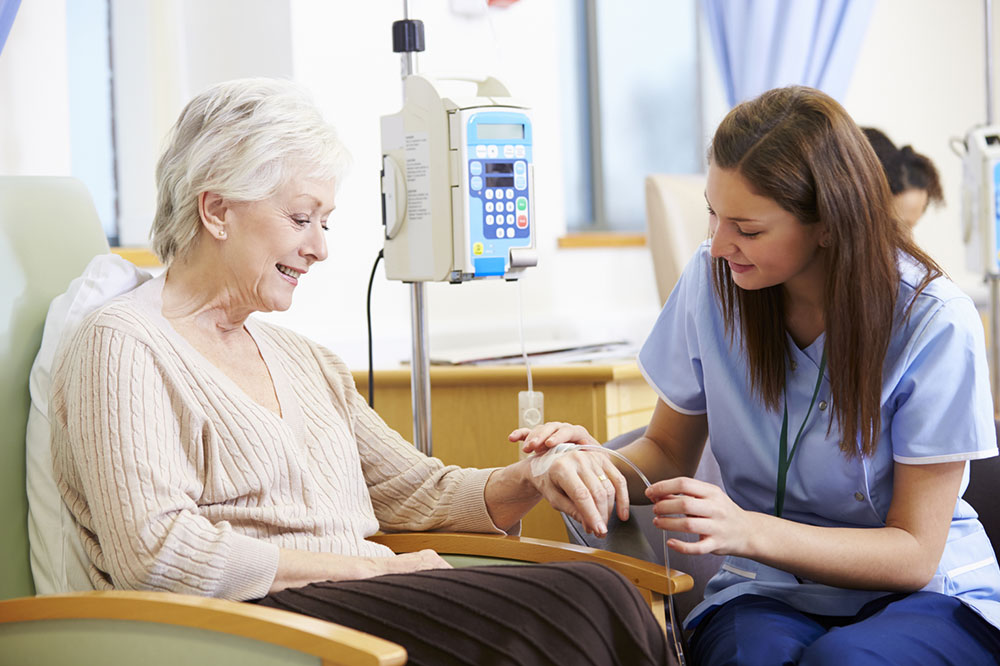6 side effects of therapies for leukemia

Leukemia is a kind of cancer that impacts blood cells, including the bone marrow and the lymphatic system. The goal of treatment is to eliminate the cancer cells that take over the normal function of the blood cells. However, treatment for leukemia may have several side effects that vary in type and intensity depending on the type of treatment. Here are a few of the side effects of leukemia treatment to know about.
Effects on the bone marrow
Chemotherapy reduces the ability of the bone marrow to produce enough blood cells. A low platelet count can result in easy bruising and bleeding. A platelet transfusion often reduces the risk of bleeding until the count improves.
Nausea and vomiting
Chemotherapy and some types of radiation therapy can cause nausea and vomiting. Before and for a few days following chemo, the doctor may prescribe anti-sickness remedies. Also, eating smaller meals throughout the day over a few large ones can help to prevent nausea and vomiting. Consuming soft, chilled foods like custard and jelly can also relieve such symptoms. After treatment, a patient can drink soda water, ginger ale, and have dry toast to feel full and light.
Bowel changes
Chemotherapy has the potential to cause some damage to the lining of the intestinal wall. This could result in diarrhea, cramps, wind, and stomach swelling. Inform the nurses and doctors right away if any of these symptoms appear. If the patient has constipation or any soreness or tenderness around the anus, a mild laxative may help soften bowel movements.
Hair loss
One common side effect of this treatment is hair loss. However, it usually only lasts a short while. The hair may start to fall out shortly after treatment and typically grows back three to six months later. It is advisable to only use a mild baby shampoo and soft brushes to lessen the itching and soreness of the scalp, and stay away from using heat or chemicals. Avoid exposing the uncovered head to direct sunlight because cancer treatment may make the skin even more sensitive to the sun’s harmful rays. Hair loss can also occur in the brows, eyelashes, arms, and legs.
Early menopause
Certain cancer treatments can disrupt the normal functioning of the ovaries. Even at a young age, this can result in infertility and menopause that begin earlier than expected. Hormonal changes can cause several common menopausal symptoms. During this time, some women may experience decreased sexual drive, anxiety, and even depressive symptoms. Any changes to the period should be brought up with the doctor or nurse.
Fatigue
Aside from remedies and relaxation techniques, avoiding fried or greasy foods, eating frequent small meals and snacks, and drinking plenty of water can all be beneficial. It is natural to feel tired after leukemia treatment; however exercise can help one cope with and reduce fatigue. It’s critical to strike a balance between exercise and rest.
Individuals can often make certain mistakes in trying to manage the symptoms of leukemia while undergoing treatment. They can often opt for treats like sushi or ice-cream as a mood-booster, or just make meals once a week and keep heating leftovers for the other six days. However, while these things sound good, they can lead to further issues with leukemia symptoms. It is advisable to eat simple, fresh home-cooked meals every day, avoid condiments like mayonnaise or raw meats like sushi and pate. Additionally, chemicals like benzene and formaldehyde, present in specific workplaces, can also be a health hazard. It is thus advisable for the patient to be very careful of their daily habits and activities while managing leukemia.

